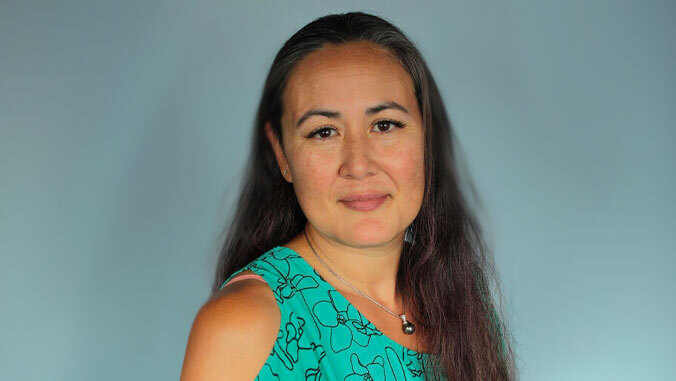
Research conducted by the University of Hawaiʻi at Mānoa is unearthing the unique challenges that Indigenous faculty face in earning tenure, academia's "golden ticket." In a peer-reviewed study published in Sage Journal's Environment and Planning F, researchers uplifted the stories of Native Hawaiian, American Indian and Alaska Native faculty in Hawaiʻi, the U.S. and Canada who sought tenure and experienced challenges, some of which were specific to them as Indigenous people.
The study, Wrangling the system: How tenure impacts Indigenous research, was further highlighted in August in Sage Journal's Sage Perspectives. Study lead, Lorinda Riley, assistant professor of Native Hawaiian and Indigenous Health in the Office of Public Health Studies and Hawaiʻinuiākea School of Hawaiian Knowledge, conveyed the importance of tenure reform to Indigenous scholars specifically, but to the broader Indigenous community in general.
"It was a real honor that so many Indigenous faculty shared their stories with me," Riley said. "In academia, we tend not to show vulnerability, but I think there is a recognition that in order for Indigenous faculty to keep doing the important community work that we love, something needs to change."
Responsibility to communities
Riley explained that Indigenous scholars often approach their role in academia as members of their communities. Thus, they have kuleana, or a responsibility, to their own community in addition to the requirements placed on them by their university. This dual burden means that while some Indigenous scholars provide tremendous benefit to their community and their institution, it can take a toll, and make the road to tenure even more challenging.
At the end of the day, having a diverse faculty is beneficial to institutions of higher education
—Lorinda Riley
According to the study, the tenure process incentivizes maximum research productivity, therefore many Indigenous faculty questioned their desire to use decolonized and Indigenous methods and worried that it would make achieving tenure more difficult. The pressure of tenure leads many Indigenous faculty to bifurcate their research agenda.
One junior faculty said, "I have my pre-tenure research agenda and then I have my post-tenure research agenda… but my post-tenure is what sets my soul on fire."
"The work that faculty do for the community needs to be honored and respected by the institution," Riley said. "This is especially true for Indigenous faculty, many of whom are working to regain the trust of Indigenous communities that, historically, were mistreated by researchers."
The study also determined the need for more mentorship, at all levels. "A good mentor was equated to having a superpower by participants," Riley said. "This may be one of the reasons that Indigenous faculty tended to spend extra time developing curriculum and mentoring students."
Reforming the process
The researchers stated that reforming the institutional review process to align with community-engaged research practices would remove unnecessary barriers to Indigenous research.
For example, providing increased flexibility to allow for co-creation of research design would reduce the need for constant modifications.
"At the end of the day, having a diverse faculty is beneficial to institutions of higher education," Riley said. "If we are ever going to end the underrepresentation of Indigenous faculty, changes need to be made at an institutional level."






